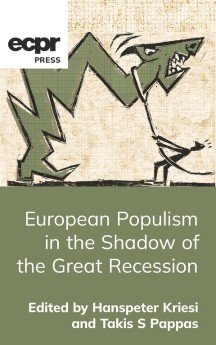European Populism in the Shadow of the Great Recession
About this ebook
Based on a common analytical framework, chapters offer a highly differentiated view of how the interplay between economic and political crises helped produce patterns of populist development across Europe.
Populism grew strongly in Southern and Central-Eastern Europe, particularly where an economic crisis developed in tandem with a political one. Nordic populism went also on the rise, but this region’s populist parties have been surprisingly responsible. In Western Europe, populism actually contracted during the crisis – with the exception of France.
As for the two Anglo-Celtic countries, while the UK has experienced the rise of a strong anti-European populist force, Ireland stands out as a rare case in which no such a party has risen in spite of the severity of its economic and political crises.
About the author
Hanspeter Kriesi holds the Stein Rokkan Chair in Comparative Politics at the European University Institute in Florence and has previously taught at the universities of Amsterdam, Geneva and Zurich. He was the director of a Swiss national research programme on the ‘Challenges to democracy in the 21st century’ from 2005–12.
Takis S Pappas is Associate Professor at the University of Macedonia, Greece, and during this project, was a Marie Curie Fellow at the European University Institute in Florence. His most recent book is Populism and Crisis Politics in Greece (Palgrave 2014). He is currently working on a new book project under the tentative title Democratic Illiberalism: How Populism Grows.







